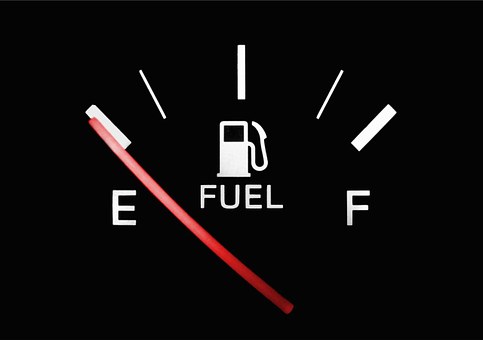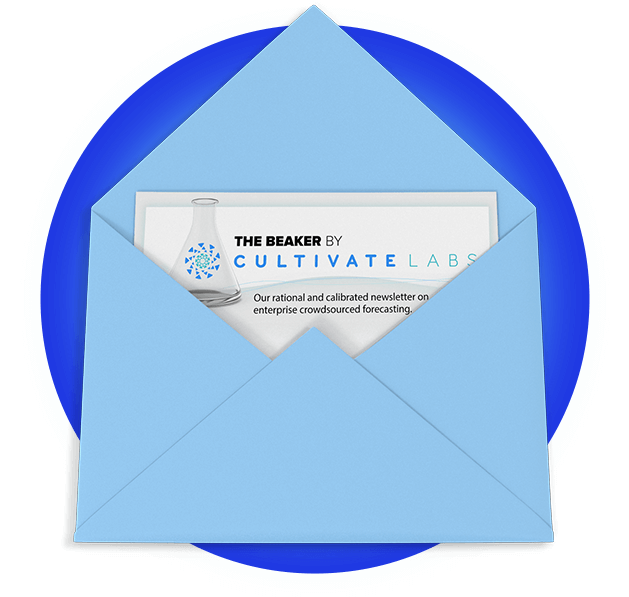How Your Car's Gas Gauge is Like the Future of Work
By Cultivate Labs on July 19, 2017

Your car's gauge may seem like a simple tool, but it provides you with a lot of data to make strategic decisions.
We take the important data it provides us for granted because it is now innately understood. We monitor the needle as it drops, watching as it gets closer to the orange line indicating a quarter tank, and if you're anything like me, that's when the game begins. The game of course is gas-gauge-chicken, seeing just how long I can drive before having to stop and fill up my tank. I like to think I've become a master of this game, getting better and better at understanding what information the gauge is telling me, knowing where I am on a map, how big the car's tank is, and the location of the next gas station. I can then predict just how much of a (calculated) rebel I can be in delaying the inevitable refuel, because while the game is fun, stranded on the side of the highway is not. If on the other hand, you're like my very risk-averse father, you fill up when that needle hits the orange line. Sure, his method is a lot safer, but when driving expanses of highway through Wyoming, I'll be much better at forecasting if we'll be able to make it 75 miles the next town or if we need to call AAA now than someone who hasn't learned to observe and measure the data in the surrounding environment to make judgement calls.
Everything in the future of work will be measured, so learning to measure, distill data, make predictions, and adapt them as new information is presented, will better prepare you as both the leader and employee of an organization.
Everyone is Data Obsessed
CEOs have always measured the status and output of their organizations with a slew of alphabet-soup metrics (think ROI, GOGS, ROA, IRR, NPV), academic success is largely based on standardized and quantitative testing, and politics are saturated with numbers from political performance indicators to approval ratings to voter statistics. But increasingly, data is becoming more important at an individual level, and people are becoming obsessed with data and numbers.
The advent of social media and SaaS products like Squarespace, Shopify, and Gusto empower us to know the power of our own platforms and create businesses from our bedrooms. People are obsessed with being measured. How many social media followers do I have? How many people engaged with my latest blog post or video on YouTube? Where is the majority of the traffic to my e-commerce site coming from?
Data is no longer something to be controlled only by a select few, and it will allow all of us, both individually and collectively, to make smarter decisions.
How to Apply Data as an Employer and Employee
The business environment is changing faster than it ever has before, largely driven by rapid advancements in technology and a generation of talent entering the workforce who embrace technology to disrupt established industries and change the rules of the game. In a competitive landscape, data is critical to the success of both companies and individuals. Organizations need improved methods of acquiring data so they can adeptly act upon it. Traditionally that process has been rather channeled - information is gathered from employees, presented by managers, and executives make a decision themselves. There is little open interchange or collaboration of knowledge and ideas, which impedes leaders from making decisions based on the most reliable information available and biases it.
By crowdsourcing insights and ideas from their teams about various goals, events, deadlines and projects, leaders are able to are able to glean a more wholistic and thus accurate view from which to make decisions. Just as I'm better able to decide when the best time to stop to fuel up based on various contributing factors, executives are primed to make better decisions when they have a source of continuously updated information.
On the flip side, employees too can use data to their advantage. In order to evaluate employee contributions, organizations need a structure to understand how employees work impacts the company, especially revenue generation. Roles such as finance and sales that are based on quantifiable goals are much more easily evaluated than roles that don't naturally lend themselves to be measured like legal, and R&D. A salesman can prove whether or not he met his quota, but an attorney may have a more challenging time quantifying the impact of her work.
"Don't tell me, show me." When negotiating for applying for jobs, defending a budget request, or negotiating for a promotion, having data allows employees to defend their position by showing concrete examples of the impact of their work and why it is a wise investment. While HR is beginning to develop "people analytics" to level that playing field, it is wise for employees to find ways to measure their contribution.
Acquiring Data and Putting it to Use
As we get more information the better we can perform both as individuals and as organizations, and everything we do at Cultivate Labs is based on that premise to help organizations source, analyze, and leverage all of the data that is in the insights and ideas of their people. Forecasts and Ignite, help both companies and individuals source more accurate information so that they may make better decisions.
Prediction markets like Forecasts provide data to decision makers that is continuously updated by a group of people as they acquiring new information and amend their predictions, which allows executives to make decisions from an informed comprehensive view point than from a biased personal view. In addition, prediction markets allow individuals to understand what they are and are not good at, learn from their assumptions, and hopefully internalize those lessons to become better informed and more accurate with their forecasts in the future. Internal crowdfunding allows organizations to open up their innovation processes to obtain ideas, collaboration, and feedback across boundaries such as department or geography that can improve the efficiency and cost of innovation. As we gain more information both as individuals and as organizations, we are able to make smarter strategic decisions.

So how exactly is your gas gauge like the future of work? Because everything in the future of work will be measured, and the more reliable, real-time data you have access to, the better you will be at making decisions.
My first car only had a simple visual gas gauge which measured approximately how much gas was left in the tank, and I had to make the best decision I could based on the information available to me. When I hop in the drivers seat of a newer car, I always notice the fancy information panel that provides me a lot more data, like exactly how many gas miles I have left. In addition there are other technologies adding data to my strategic plan such as GasBuddy, which provides gas prices in my proximity and Waze, a crowdsourced navigation and traffic app. While it takes a bit of fun out of my game of gas-gauge-chicken to have so much information at my fingertips to improve my accuracy, I'll happily enjoy the nearby tasty taco truck I found using Yelp with the money I saved selecting the cheapest gas station using GasBuddy while avoiding the congestion Waze alerted me to due to Denver's newest construction project, instead of ending up stranded on the side of the road with no gas and no tacos.
Curious about the trends of the Future of Work in our white paper: A Look at the Future of How We Work

By Cathryn Wile
Marketing
prediction markets enterprise crowdsourcing disruptive leadership

